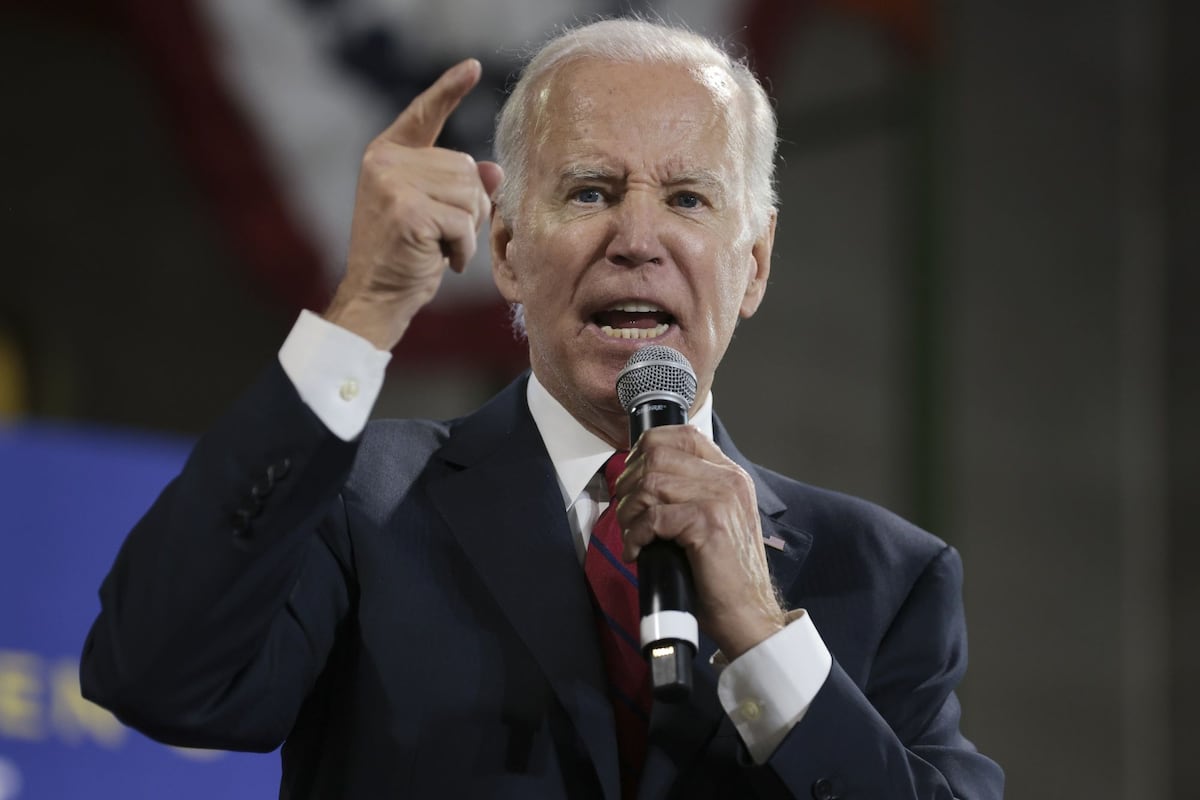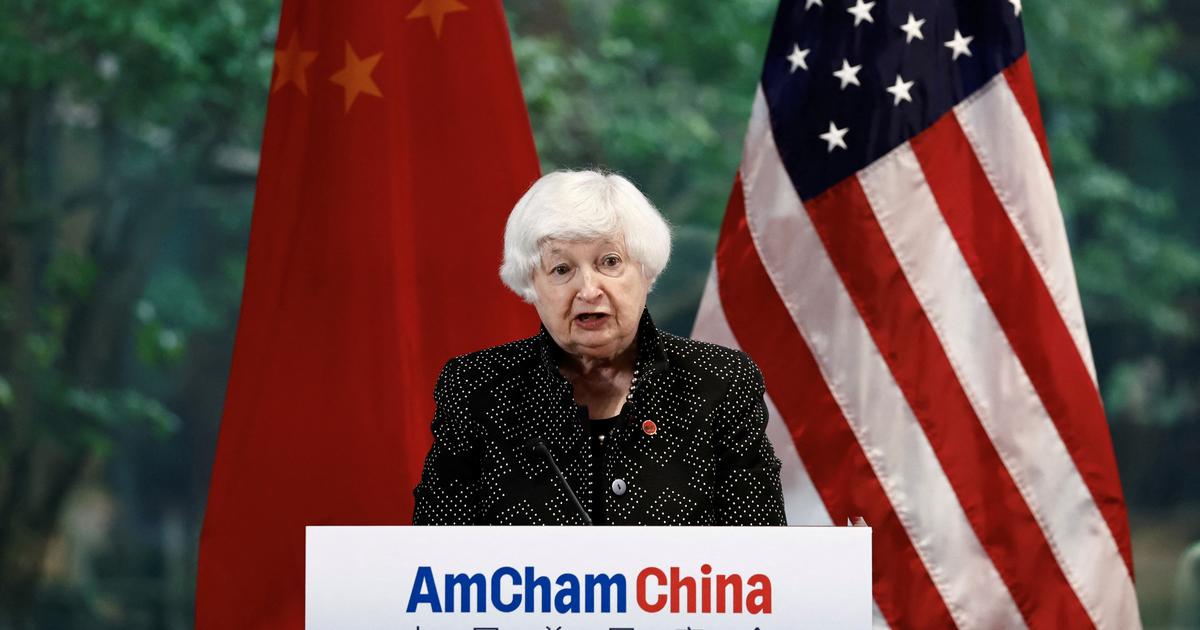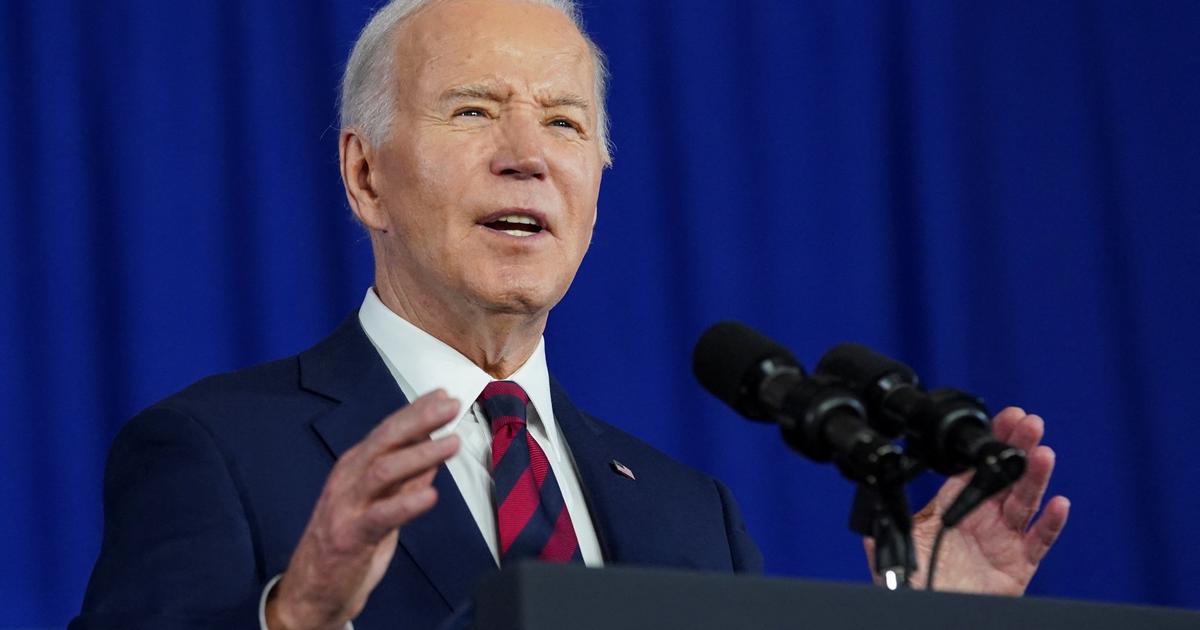Joe Biden wanted to celebrate on Thursday that the US economy continues to grow at a good pace (at an annualized quarterly rate of 2.9% between October and December), that inflation is losing ground and the unemployment rate equals the minimum of the last half century .
The day the gross domestic product data was published, the President of the United States scheduled an event with the unions in Springfield, on the outskirts of Washington, in the State of Virginia.
There he made a show of economic protectionism and rejected international complaints (among which the European ones stand out) to his economic protectionism: “To hell with that,” he said, and laughed afterwards.
It was a propitious environment for a nationalist message, before unionized industrial workers.
“Where the hell is it written that the United States can never go back to being the world leader in manufacturing?
Where is that written?
I don't know where it is written.
And it will not be on my guard”, said the president, before referring directly to the protests from other countries over his industrial policy.
“Ladies and gentlemen, we are being criticized internationally for focusing too much on America.
To hell with that.
This is very serious.
The supply chain is going to start here.
Those…those countries that are democracies, will be able to benefit from what we are doing, and we will make sure that they have…the supply chain does not end with us,” he has said.
Biden has launched aid and subsidies to boost the manufacture of microprocessors and to promote the energy transition in the United States.
The European Commission already complained last summer that some of these measures, in particular those included in the Inflation Reduction Law, its flagship climate and fiscal project, were "clearly discriminatory", particularly with regard to electric vehicles that are Manufactured in the European Union.
Supply chain
Washington also included strong incentives for the manufacture of chips, although as Biden also acknowledged this Thursday in the act with the unions, that decision "has caused a certain stir around the world."
The president of the United States hid behind the problems in the global supply chain caused by the pandemic and, in particular, the microprocessor shortage crisis.
The increase in the cost of chips and their lower supply ended up making all kinds of products more expensive, from cars to refrigerators, through mobile phones and computers.
One of the consequences that the experts pointed out that the pandemic would have is this reconfiguration of global supply chains to reduce dependence on third countries.
Biden, who watched inflation erode his popularity throughout the past year, has led the way in attracting and incentivizing investment that changes the flow of trade.
This Thursday he explained it again in Springfield: "We can never be in a position where American automakers can't make cars because we don't make chips in the United States," he said.
“We cannot allow that to happen again.
So, what we did: with the CHIPS and Science Act, I made a commitment that the supply chain is going to start in America, not end in America,” he said, to applause from the audience.
Although the United States has always tried to differentiate theoretically between its allies, the Western democracies, and other economic rivals such as China, in practice protectionist measures also harm European companies.
Faced with the difficulty of achieving any progress, Brussels has begun to study its own response.
The President of the European Commission herself, Ursula von der Leyen, warned in December: "The EU will respond in an appropriate and well-calibrated way."
Von der Leyen highlighted that the Inflation Reduction Law invests throughout the entire value chain in strategic sectors.
“This is not always the case with our state aid.
We must take a fresh look at how to support the entire value chain, moving down to mass production of strategic green technology solutions and clean end products.
Even through public investment,” she said.
Then he conveyed the same message to heads of state and government in a letter in which he aimed to simplify state aid for renewable energy, industrial decarbonization processes or strategic products in the transition (batteries): "We have to facilitate public investment to promote this unprecedented transition”, it said, adding: “The EU is a leader in clean technology, it wants leadership and that companies continue to invest here”.
Biden, on the other hand, wants them to invest in the United States.
He not only ignores international criticism, but this Thursday he has gone a step further with the announcement of the creation of a cabinet called "Invest in America" and that sees the best way to use that aid.
"I'm going to take all these Cabinet members, Secretaries of Commerce, Labor, Transportation, Treasury, Energy, Health and Human Services, and Environmental Protection Agency and I'm going to put them in a subcabinet," he said.
"And they're going to come up with a plan: how we apply everything we've done (...) And in the process, I promise you what's going to happen: It's going to attract billions of dollars more in private investment and get the best results possible for American workers and families," he said.



/cloudfront-eu-central-1.images.arcpublishing.com/prisa/VBVLA4RLPJBHZEVSYQCSXI5CX4.jpg)











